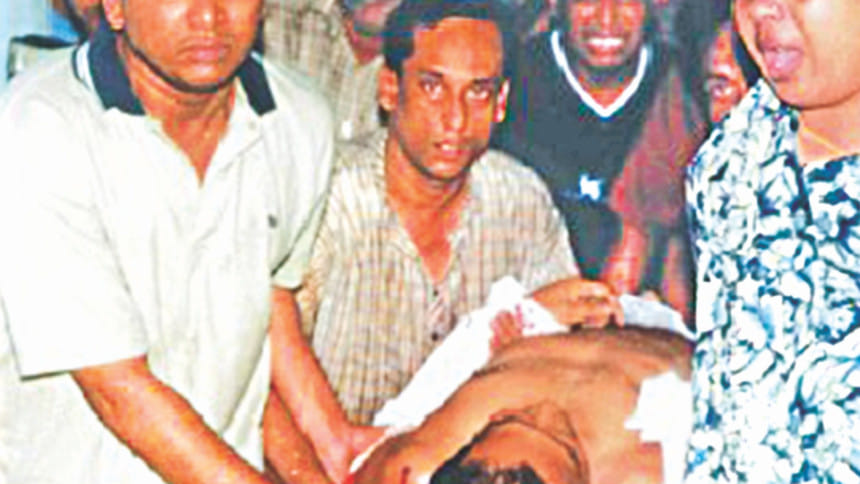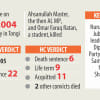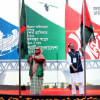Get rid of rowdy activists

The political parties of the country tend to not desert their rowdy activists rather they are largely depended on them, which is a major obstacle to the nurturing of a fair political culture, observed the High Court in a verdict yesterday.
"Rule of law would not be established in the country unless a fair political culture is developed. Democracy will be thwarted," said the court while delivering the verdict on appeals in the case filed for the assassination of Awami League lawmaker Ahsanullah Master over a decade ago.
On May 7, 2004, gunmen shot and killed Ahsanullah, also the president of Jatiya Sramik League, and Omar Faruq Ratan, a school student, and wounded 17 others in a staccato burst of fire at a rally of Awami Swechchhasebak League, the AL's volunteers' front, at Noagaon near the legislator's house in Tongi.
Yesterday, the HC bench of Justice Obaidul Hassan and Justice Krishna Debnath delivered the verdict in the sensational political killing of the popular labour leader.
Justice Obaidul Hassan made some observations shedding light on the motive of the killers, their ferociousness, life of Ahsanullah and the loss the country incurred and the confrontational politics.
"The killing on which we received the death reference is undoubtedly a heinous incident. Such a killing has rarely happened in the history of Bangladesh. The incident that unfolded at MA Mazid School in Noagaon [the killing spot] clearly indicates what extent criminalisation of politics has reached," the judge said.
Justice Hassan said Ahsanullah Master was respected by all, irrespective of party affiliations. He was active in running anti-drug campaigns and activities in Tongi of Gazipur.
"If an ideal lawmaker like Ahsanullah Master was alive, he could have done many more good deeds for the people passing laws that the nation would have been benefited by," said the presiding judge of the bench, adding that the convicts deprived the nation of such opportunities.
"They killed an ideology. Political leader with principles, like Ahsanullah Master, is hard to come by in our society these days," he said in his observations.
Touching on the motive behind the killing, Justice Hassan said the convict, Nurul Islam Sarkar, who masterminded the killing, had political rivalry with Ahsanullah Master and business enmity with Mahfuzur Rahman Mohol, a Jubo League leader and a local businessman, who was maimed by the attack and has been paralysed from the waist down.
Ahsanullah and Mahfuzur were Nurul's target and he did not want to lose the chance to kill them, he said.
Terming it a “mass killing”, he said Nurul and his cohorts were undoubtedly directly responsible for the killing.
About the viciousness of the convicts, the judge said they were not bothered that their indiscriminate firing on the rally could cause deaths of many.
"They even did not use any masks while carrying out the attack in broad daylight as they thought nothing would happen to them even if someone recognised them," said Justice Hassan.
The reason behind such recklessness was that they had such a power behind them which had the capacity to protect them from any possible problem in future, he said.
The local unruly political goons had such a belief because the political parties do not tend to shun these people, the judge said.

 For all latest news, follow The Daily Star's Google News channel.
For all latest news, follow The Daily Star's Google News channel. 






Comments